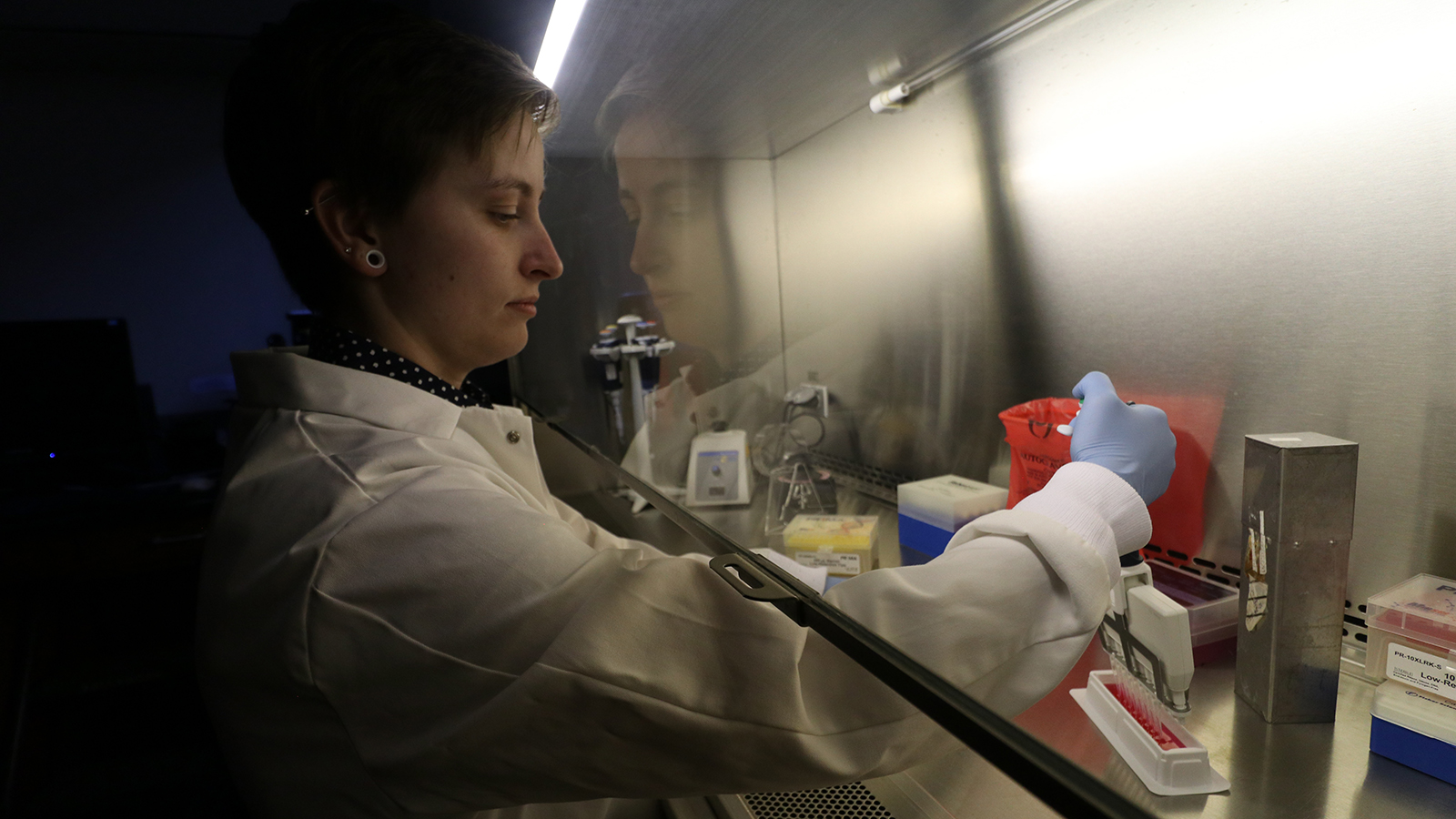Header
The breeding and genetics group is known for its historical and recent accomplishments in the development and application of quantitative genetics and molecular genetics approaches for improvement of beef, swine, poultry, sheep, and horses. We are fortunate to have a faculty group with diverse research interests and expertise to provide a comprehensive training of future professionals in the field of modern animal breeding and genetics. The range of current research efforts spans quantitative to molecular investigations, and is characterized by well-funded, team-oriented, multi-disciplinary projects. General areas of research include development and evaluation of statistical approaches in animal breeding and identification of genes and genetic variants affecting a large variety of traits across different species.
Program Features
Cutting-Edge Research
You'll have the opportunity to participate in impactful research including molecular and quantitative approaches.
Research Presentation Opportunities
Our faculty and students often have the opportunity to present research at conferences both throughout the United States and around the world.
Livestock Industry Involvement
We continue to have strong working relationships throughout livestock industries to help you build valuable partnerships that will help you both as a student and after you graduate.
Notable Courses
Genome Analysis (ASCI 432/832)
Theoretical and practical aspects of: structure and function of eukaryotic genomes; genome sequencing and assembling, polymorphism and isoform detection and genotyping; gene and genome annotation; strategies used to identify genetic variants responsible for phenotypic differences; and personalized genomics, social and ethical aspects associated with genomic information.
History and Perspectives in Animal Breeding and Genetics (ASCI 865)
Historical perspective to the discipline of animal breeding and genetics. Introduction to the contributions of geneticists who have significantly impacted the discipline. Material includes pre-recorded interviews of scientists that have had an international impact in animal breeding and genetics. Critique key papers.
Quantitative Animal Genetics II (ASCI 933)
Evaluation of methods for developing and exploiting genetic diversity among animal populations to improve bio-economic efficiency of animal production.
Other Graduate Courses
These are just some of the courses you will take in our graduate program. Click below to learn more about our other animal science graduate courses.
Explore CoursesAnimal Science Graduate Programs
- Typically completed in 2 years
- 30 credit hours required
(including 6-10 research thesis hours)
- Typically completed in 4-5 years after the B.S. degree or 2-3 years beyond the M.S. degree.
- One half (90 credit hours beyond the B.S. degree) must be completed at the University of Nebraska-Lincoln.
- A professional degree in agricultural science, community development and natural resources at the master’s level
- Flexibility that allows you to design an area of study that addresses your educational goals
- Online courses allowing you to earn the degree remotely
- Animal Science
- Beef Cattle Nutrition
- Extension Education Experience
- Teaching Engagement Experience
Huskers Do Big Things
Program Alumni
- Melanie Trenhaile, Cobb Vantress
- Garrett See, AcuFast
- Hiruni Wijesena, U.S. Meat Animal Research Center (USMARC)
- Lindsay Upperman, Red Angus Association of America
- Alexa Barber, University of Nebraska Medical Center
- Kylee Sutton, Creighton University
Our Research
The breeding and genetics group is known for its historical and recent accomplishments in the development and application of quantitative genetics and molecular genetics approaches for improvement of beef, swine, poultry, sheep, and horses.
Explore ResearchOur Faculty
Prior to applying, please contact a specific animal science faculty member in your area of interest. Click below to meet some of our faculty in this specialization.
Meet the Specialization FacultyQuestions? We're Here to Help
If you have questions about any of our specializations within the Animal Science graduate program, please contact a member of our graduate student services team below.


